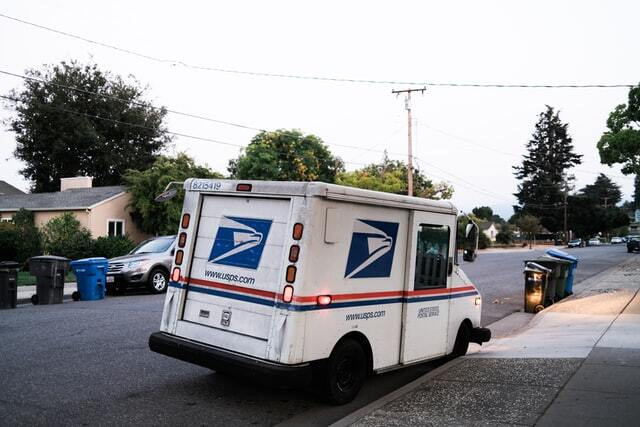Vape Mail Ban Won't Stop Teenagers From Buying Vape Products
Estimated 0 min read
With the very generous 2021 covid economic relief omnibus bill came another measure that almost went unnoticed, the “Preventing Online Sales of E-Cigarettes to Children Act,” which has dealt a heavy blow to the vaping industry.
The bill, now known as the “vape mail ban,” which was signed by President Trump on December 27, states that from now on, all shipments of vaping products are banned from the U.S. Postal Service. It also forces all other postal carriers (FedEx, UPS, and DHL) to check IDs and get signatures at the delivery site from adults whenever a vaping product is delivered.
Aside from this, another measure was grouped in the bill called the Prevent All Cigarette Trafficking (PACT) Act, forcing online sellers of any vaping product, nicotine, cannabis, and non-nicotine with a set of rules. This measure will make the normal functioning and selling of vape and CBD products much harder. These new laws make it extremely difficult for vape and CBD online sellers to earn a living, from keeping detailed records of all items sold to affixing tax stamps on each of their products.
What’s more, these new rules and regulations will only accomplish the two things the vaping community fears most: it will force adult vapers to go back to cigarettes. It will create a black market where illegal and dangerous vape goods will reach the hands of minors.
Table of Contents
- The Vape Mail Ban
- Not an Effective Method to Prevent Online Sales to Teenagers
- Why Will This Ban Push Vapers Back to Cigarettes?
- Conclusion
The Vape Mail Ban
The Congressional Bill S. 1253, otherwise known as the "Preventing Online Sales of E-Cigarettes to Children Act" or the "vape mail ban," was first introduced to Congress in April. It changed a cigarette's definition to include all types of vaping devices, including even CBD vaping devices. In essence, the law requires that the U.S. Postal Service created its regulations that ban U.S. mail delivery of "cigarette" goods (which under the new definition includes all vaping goods whether they use nicotine or not).
This vape ban prohibits the delivery of vape goods. Under the Prevent All Cigarette Trafficking (PACT) Act also sets a new set of rules and regulations that will make it extremely difficult for small retailers to do business. Here are the laws and regulations online sellers will be required to adhere to:
- They must register with the U.S. Attorney.
- Verify the age of their customers using a commercially available database
- Use private shipping companies that will collect the signature of adults at points of delivery.
- If selling in states that tax vaping goods, they must first register with the federal government and the tobacco tax administrators of those states.
- Collect all the necessary local and state taxes, and affix the required stamps on every product sold.
- They must also send each taxing state's tax administrators a list of all sales or transactions, along with each of the customers' names and addresses and the quantities and types of products sold.
- Finally, they must maintain records for up to five years of any delivery that was "interrupted because the carrier or service determines or has reason to believe that the person ordering the delivery violates the [PACT Act]"
Sellers who don't comply with these new rules or choose not to register will face severe penalties, including up to three years in prison.
Gregory Conley, President of the American Vaping Association, said in a statement that "If the increase in shipping costs wasn't enough, the bill also imposes huge paperwork burdens on small retailers, and backs it up with threats of imprisonment for even innocent mistakes," adding that "This is not a law designed to regulate the mail-order sale of vaping products to adults; it's an attempt to eliminate it."
The new rules and regulations of the PACT Act will take effect in 90 days, which will force online retailers to study carefully with their lawyers the new law to see if it’s feasible if they can comply.
Since the U.S. Postal Service will be unable to deliver vape products anymore, these online retailers will need to use private carriers like FedEx, UPS, and DHL. However, these institutions are already swayed by anti-vaping groups to ban the delivery of vaping goods. FedEx said in a statement that “As of March 1, 2021, FedEx will begin prohibiting electronic cigarettes, vaping liquids, and other vaping products in the FedEx global network.”
Not an Effective Method to Prevent Online Sales to Teenagers
While these new laws were created to prevent teenagers from getting their hands on vapes, it seems like they will push the vaping community to illegal markets where the quality of goods can’t be guaranteed. There are already thriving black markets in New York, New Jersey, and Massachusetts, where flavor bans have been enacted. With one bootlegger bragging that he just leased a new property where he plans to serve his customers and has 10 gallons of nicotine, which according to him, will “set him up for a few years.”
Why Will This Ban Push Vapers Back to Cigarettes?
Undoubtedly this ban will push adult vapers back to cigarettes or force them to acquire illicit goods to maintain their nicotine addiction. Most likely though most people will go back to cigarettes, which are readily available in every gas station, convenience store, and corner store in the country.
Conclusion
Gregory Conley, President of the American Vaping Association, said in a final statement that “There are still 36 million American adults smoking combustible cigarettes and over 400,000 will die from smoking-related illnesses this year alone. The American people should start questioning why their government is so intent on making it harder for adults to quit smoking.”







